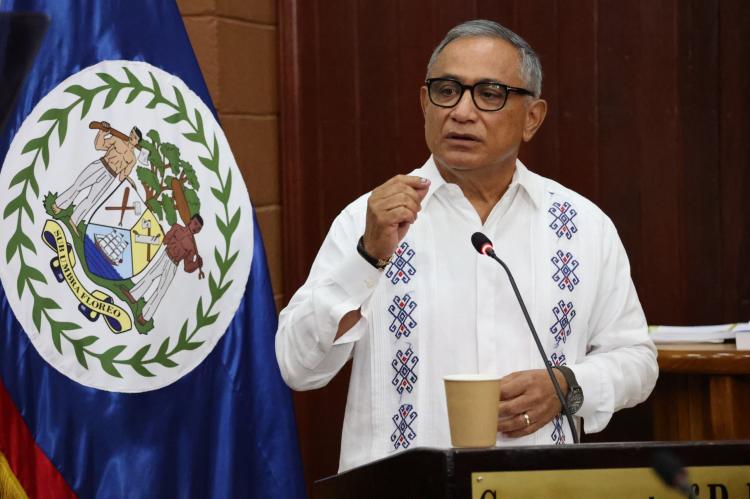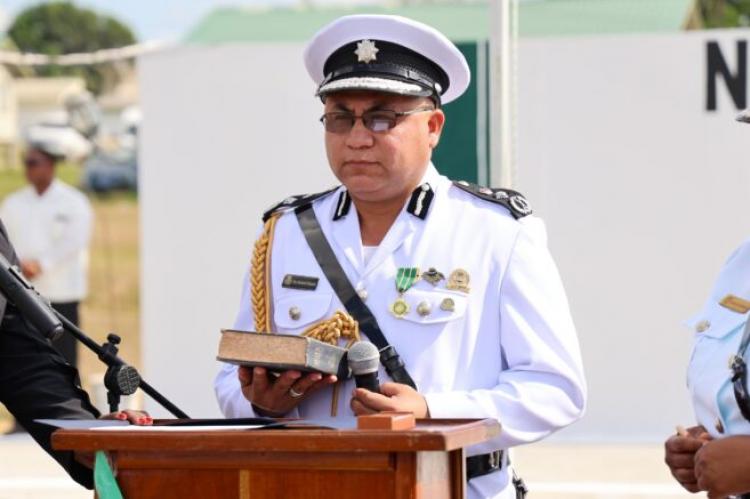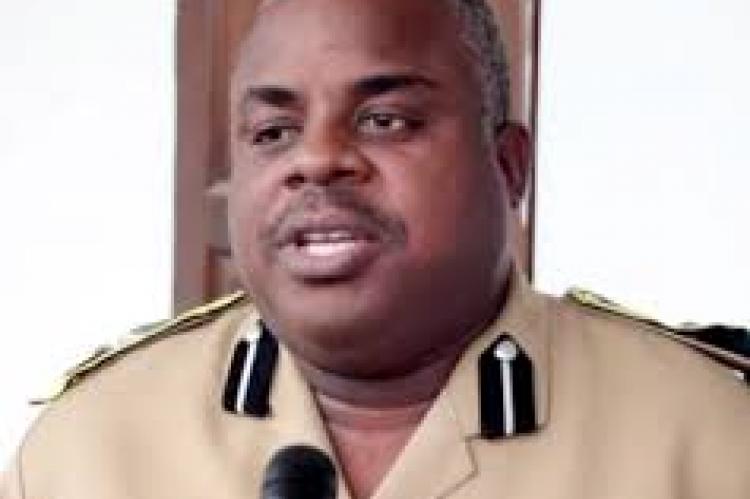No More Shadows: Acting ComPol Bart Jones Must Release the Tapes—or Own the Consequences
After the Prime Minister sent ComPol Rosado on 45-day leave and interdicted PC Barry Flowers, the public still has zero access to the original Hospital Crescent DVRs. The law is not ambiguous: liberty, due process and freedom from inhuman treatment are non-negotiable.
By: Omar Silva Editor/Publisher
National Perspective Belize — Editorial Board
Belize City — Monday 8th September 2025 - Twelve days after Joseph Ryan Budna vanished a stone’s throw from the Orange Walk Police Station and reappeared battered and in Guatemalan custody, one thing is undeniable: what’s on those cameras matters. A redacted surveillance compilation aired by 7News appears to show Budna chased, beaten for minutes near the station, a uniformed officer briefly approaches and then walks away, and the abductors carry the man off—before a blue Chevy Equinox is seen leaving the area. If accurate, that is a street-level abduction in the heart of the PM’s hometown.
What changed today. Prime Minister John Briceño said he received the police report last Friday, found it “incomplete,” and directed ComPol Dr. Richard Rosado to take 45 days leave; PC Barrington “Barry” Flowers has been placed on interdiction pending the completion of the investigation by DCP Suzette Anderson. Yet there was no release of original footage and no announcement of an independent investigation. That leaves the core credibility problem unresolved.
What hasn’t changed. Senior officials continue to urge patience while the Police Department investigates itself, but the Minister of Home Affairs Kareem Musa has publicly supported releasing the unredacted DVRs and says an independent probe is warranted “for openness and transparency.” The Prime Minister, however, has not committed to one. The gap between those positions—and the video now in the public domain—deepens distrust.
New gravity: a named officer. From a Guatemala City jail, Budna has identified PC Barry Flowers as one of the men who handed him over at Arenal’s football field—saying he recognized him in a white T-shirt under bright lights. Flowers (via message) denies involvement. Whether that identification holds or not, it is now a test of the Department’s willingness to investigate its own without fear or favor.
The Evidence on Record (So Far)
- Surveillance sequence (Hospital Crescent): The compiled video aired by 7News shows a pursuit from Banquitas, an assault lasting ~90 seconds to 3 minutes near the station, a uniformed officer’s brief appearance and disengagement, and the victim carried off. The behaviors depicted—assailants acting brazenly within ~100 feet of the station—look and feel like men operating with police-level impunity.
- Minister Musa’s on-camera assessment: He confirms he first saw the leaked video via the newscast, acknowledges the footage “leaves a lot to be answered,” and supports both releasing the originals and an independent investigation.
- Custody in Guatemala: PNC confirmed Budna is detained on a 2019 warrant for escape, but has not stated how he was apprehended—only that he was taken for treatment with visible injuries. Belize MFA says there’s no evidence Guatemalan agents operated on Belizean soil. These official silences and hedges create more questions than answers.
The Law Is Clear (and It Cuts One Way)
1) Constitution—Non-negotiable rights.
- Section 5: Protection of personal liberty. No one may be deprived of liberty except as authorized by law, and must be brought promptly before a court.
- Section 6: Protection of the law (due process). Guarantees fair hearing by an independent and impartial court, and legal procedures before state action.
- Section 7: Freedom from inhuman or degrading treatment.
- Section 10: Freedom of movement.
If state actors abducted a citizen and expelled him across a border without legal process, that touches Section 5, Section 6, and Section 7 at minimum, and likely Section 10.
2) Extradition is a courtroom process—not a pickup truck.
Belize’s Extradition Act, 2023 (Act No. 31 of 2023) requires: (a) a formal request to the Central Authority (AG); (b) an Authority to Proceed issued by the Minister; (c) an arrest on a Belize warrant; (d) a committal hearing in the Magistrate’s Court; (e) a 15-day window for habeas corpus; and only then (f) the Minister’s surrender order. None of this allows a covert hand-off at an informal crossing. Even a provisional arrest triggered by Interpol still ends in court—not in Arenal’s football field.
3) “But Belize has no treaty with Guatemala.”
Indeed, in 2019 police leaders publicly said there was no extradition treaty with Guatemala, which is why Budna could not be sent back then without diplomacy and due process. The 2023 Act still requires process in Belizean courts before any surrender—treaty or no treaty. A “shortcut” is not a lawful option.
Our Demands to Acting ComPol Bart Jones (48-Hour Transparency Checklist)
- Release the original, unedited DVR files from: the courthouse, Banquitas House of Culture, Town Library, Police Station frontage, National Bank cameras—with hash values and chain-of-custody notes. Redactions for minors/private details are fine; tampering is not.
- Name and interview—on the record—the uniformed officer seen in the video who approaches and then leaves. Publish the officer’s written account and the supervisor’s rationale for his actions (or inaction).
- Publish VCP/Checkpoint logs (Western corridor to Arenal) for the relevant three-hour window, including plate hits, vehicle descriptions, and any exceptions authorized. Where logs are missing, say why and who is responsible.
- Obtain and release the Arenal checkpoint occurrence book extracts and the PNC “acta de aprehensión” documenting the hand-over, via the AG’s Central Authority (MLA/Extradition channel).
- Interview and publish findings on PC Barry Flowers and any other named officers; confirm interdictions/suspensions and seize relevant devices for forensic review.
If these basics are not met, the only reasonable inference is concealment.
Why This Matters—Legal Exposure to the State
If the facts ultimately show state actors abducted a citizen and expelled him extra-judicially, Belize faces serious liability in the High Court under Section 20 (constitutional redress), including vindicatory damages whose purpose is to mark the court’s condemnation, “underline the importance of the right,” and deter future breaches. The Privy Council has affirmed these awards across the Commonwealth Caribbean (e.g., Ramanoop; Merson). Those damages stack with common-law tort damages when non-duplicative.
And if Belize’s process failures are egregious, the case could also be framed before the Inter-American system for violation of due process and personal liberty rights—exposing the state to international condemnation and reparations. (Domestic due-process compliance is Belize’s best defense; right now, that defense looks thin.)
What the Public Deserves Next
- Independent scrutiny. A Commission of Inquiry chaired by a retired judge with two commissioners (one nominated by the Bar Association, one by civil society/press) should be gazetted with power to compel evidence and witness protection assurances. The Minister himself has acknowledged the case “warrants an independent investigation.” Do it.
- Time-boxed deliverables. Within 72 hours: publish unedited DVRs + checkpoint logs. Within 14 days: publish a factual timeline cross-verified with phone pings, patrol GPS, and station diaries. Within 30 days: COI terms of reference and hearing schedule.
- Due process for everyone. Budna’s past does not erase his present rights; Guatemala’s lawful interest in his escape charge does not confer on Belize the right to shortcut our own Constitution. That’s the line between a government and a gang.
“What the Law Requires to Hand Someone to a Foreign State”
- Formal request to the AG (Central Authority) →
- Minister’s Authority to Proceed →
- Belizean arrest warrant (or provisional warrant) →
- Committal hearing in the Magistrate’s Court (defence heard) →
- 15-day habeas corpus window in the High Court →
- Ministerial surrender order (after court process).
Anything else is not extradition—it’s rendition.
Final Word
Today’s administrative moves—leave for the ComPol, interdiction for a named constable—are not accountability; they’re placeholders. The truth lives in the original tapes, logs, and sworn statements. Acting ComPol Bart Jones now owns the choice: release everything and let the chips fall, or keep the public in the dark and let a judge—and maybe the Inter-American system—turn on the lights.
- Log in to post comments



